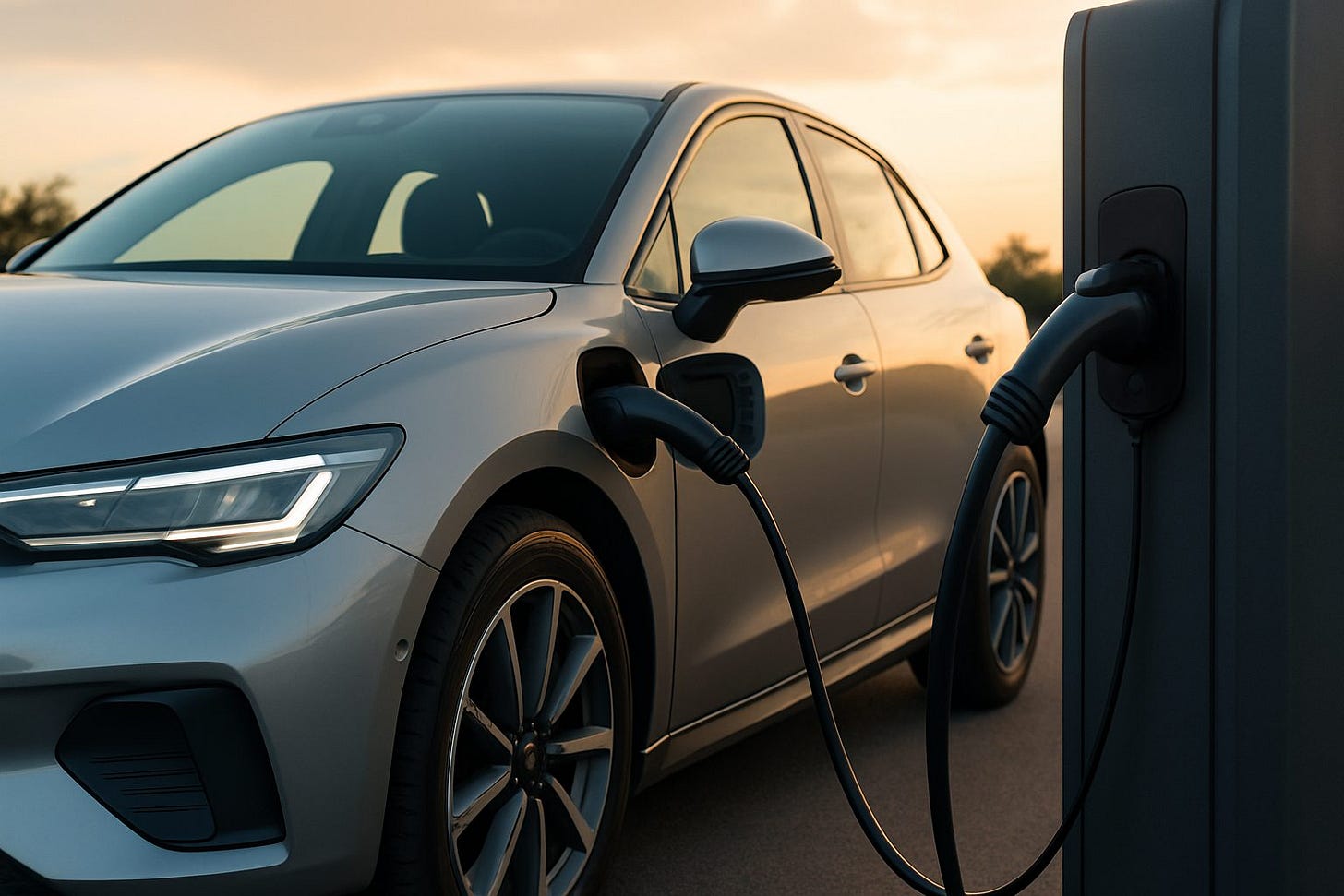5 Myths About Electric Cars That Are Costing You Money (And the Truths That Could Save You Thousands)
Uncover the real numbers behind EV myths—and how dispelling them could keep thousands in your pocket.
I think we’ve all heard them—those snarky remarks about electric cars costing an arm and a leg, running out of juice in the middle of nowhere, or even collapsing the power grid. You might have rolled your eyes—or worse, believed them (hey, no judgment). But here’s the kicker: those myths are bleeding you dry. Let’s dismantle five of them and reveal truths that might just save you thousands. Ready to drive smarter?
1. Myth: EVs cost more long‑term
The hype: Electric cars are luxury items—posters for early adopters with deep pockets.
The truth: EVs tend to cost less to own and operate over time.
A U.S. Department of Energy analysis shows EVs cost about 40% less per mile than gas vehicles. Consumer Reports pegs lifetime maintenance savings at around $8,000, while EPA data highlights significantly fewer moving parts cutting repair bills.
Sure, the sticker price might be higher today. But factor in federal tax credits (up to $7,500!), state incentives, and lower fuel + upkeep costs—and that luxury label starts to fade.
Want to see your own savings? Use an online TCO (Total Cost of Ownership) calculator and compare.
2. Myth: Charging will destroy my electric bill
The gripe: “My electric bill will skyrocket—might as well keep pumping gas.”
The reality: Charging is cheaper, steadier, and far less volatile than filling up.
Experts from CNET explain EV charging often runs at just one‑half or one‑third the cost of gasoline. The Zebra found that although home electricity usage rises, overall vehicle energy costs drop significantly.
Especially with smart meters and off‑peak rates: charge overnight, and you’re paying pennies per mile. Plus, your bill is predictable—not jumping with global oil upheavals.
💡 Quick tip: Check if your utility offers EV-specific rates to maximize those savings.
3. Myth: My EV will run out of battery in winter or traffic jams
The fear: You’re stuck idling, battery drained, nowhere to plug in.
The fact: EVs manage cold and congestion about as well—or even better—than combustion engines.
Reddit EV owners recently confirmed that ICE (internal combustion engine) cars use energy just as badly when idling:
“One myth ... was that if you were stuck in traffic ... you'd run out of power. But the ICE car is using fuel all the time; it's the ICE car that's going to run out of power first.”
Plus, modern EVs keep heat inside more efficiently, so batteries stay healthier in winter. Most daily trips are under 50 miles—and average EV range tops 200 miles. Short commute? No worries.
4. Myth: EV batteries die fast and cost a fortune to replace
The worry: What if your battery fizzles out in 5 years and costs a fortune to fix?
The truth: Batteries are reliable, long‑lasting, and cheaper than you think.
Recent studies show EV batteries typically last 10–20 years. EPA confirms lifetime emissions remain lower than gas equivalents—even after battery production.
Wired notes maintenance is basic: pollen filters, wipers, brakes—and still 40–60% cheaper overall for Teslas. And battery recycling tech is rapidly evolving to cut raw‑material impacts.
🛠️ Tip: Leasing with battery warranty or buying with extended protection offers huge peace-of-mind.
5. Myth: EVs will fry the grid
The spectacle: Say hello to rolling blackouts because everyone’s charging at once.
The fact: EVs are here to help the grid—with smarter charging, not strain.
EPA slags worries of grid collapse as outdated. Today’s vehicles and utilities use time‑of‑use rates to smooth charging demand.
EVs equipped with vehicle‑to‑grid or vehicle‑to‑home tech let you store energy and even relay it back—especially handy during peak hours or outages. As renewables rise, EV batteries become grid boosters—flexible power reserves on wheels.
Save Thousands, One EV Fact at a Time
So there you have it: five pervasive myths that are inflating your costs—not educating you. When we pull back the curtain, EVs emerge as smarter, leaner, and yes—you could pocket an extra $12,000 over a vehicle’s lifetime.
Feeling inspired?
🧮 Compare your total cost of ownership
🔌 Check for local EV incentives
💬 Share this article—challenge someone to rethink their EV apprehensions🚗 Test drive an EV and feel the instant torque yourself
Also read: 7 Ways to Go Green With an EV (Even If You Don’t Own One Yet)
Final Thoughts
We’re living in an era where one unexpected gas price surge can blow a hole in your budget. Conversely, EVs offer cost stability, fewer surprise repairs, and lower overall spending.
So next time someone dismisses electric cars as money pits, you’ve got five bulletproof truths to challenge them. Want help finding the best EV for your lifestyle or region? I’m here to guide you.
Did you learn something new? Ready to crunch the numbers on your commuter options? Drop a comment below or hit the share button—let’s demyth‑ify together. ⚡️


